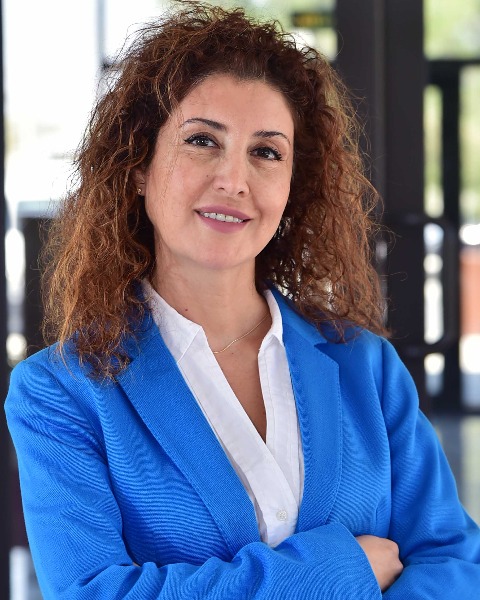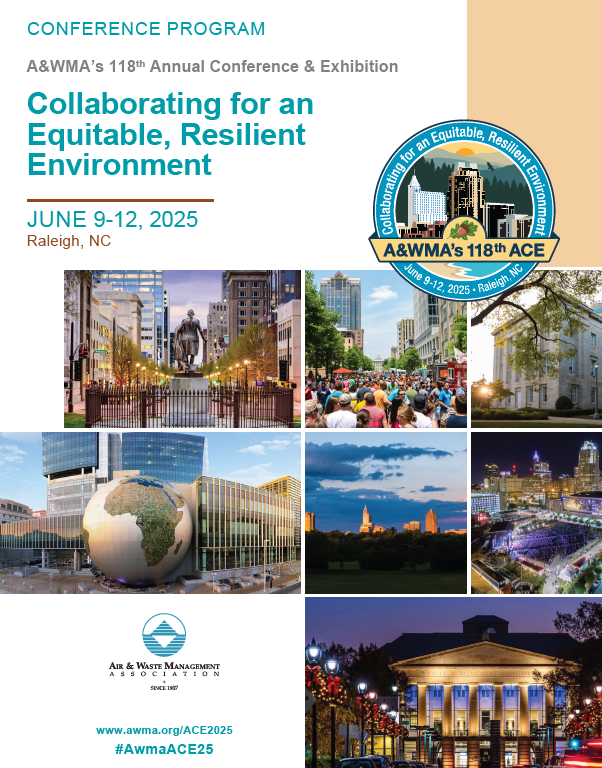ACE 2025
WAST
INDU
Wastewater and Waste-to-Energy
Wastewater Reuse Options in the GCC Region: Challenges and the Way Forward
Tuesday, June 10, 2025
4:00pm – 4:20pm ET
Location: 306C

Sophia Ghanimeh, PhD
Research Associate Professor
Qatar University, Ad Dawhah, Qatar- TH
Tasneem Hussein
Qatar University
Author(s)
Co-Author(s)
Abstract Description: GCC countries are known for desert landscapes, limited water resources and poor soil fertility. In this regard, Treated Sewage Effluent (TSE) and Wastewater Sludge (WW sludge) may offer promising alternatives to traditional water sources and enhance soil quality – specifically in Qatar, considered as a study case. This paper presents the findings of three studies by this team and opens the floor to discuss the challenges and the way forward (including potential international collaborations).
1.TSE reuse in agriculture: GCC countries heavily depend on seawater desalination, a costly and energy-intensive process with adverse effects on marine ecosystems. Taking Qatar as an example, this team showed that, if properly exploited, TSE could cover 33-92% of irrigation needs. This would significantly reduce groundwater withdrawals to as low as 26-71 million m3/year, thus keeping the withdrawal rate below the safe (recharge) yield – which is not currently possible.
Despite the above, the current primary use for TSE remains limited to landscape irrigation and industrial cooling, with a limited agricultural use for fodder crops.
2.WW sludge valorization: If treated through anaerobic digestion (AD), sludge can generate: (1) biogas that allows energy self-sufficiency of the system, with a surplus that can be used on-site, and (2) digestate, which is a nutrient-rich residue that can substitute synthetic fertilizers in Qatar. An ongoing study by this team showed that AD can generate 3.5 million MWh of clean energy and reduce GHG emissions by 642 million kg CO₂-eq. annually – with an additional 49-788 million kg CO₂-eq. from substituting synthetic fertilizers with digestate.
Yet, the local setup remains challenging for effective application of AD – considering logistical and storage challenges and high gas (e.g. ammonia) emissions under high ambient temperatures.
3.Regulatory Framework and Outreach: TSE and WW sludge are considered valuable resources for GCC countries, which relies on non-sustainable water and soil sources – the former being desalinated and the latter being mostly imported. Yet, their use remains restricted due to regulatory, strategic and cultural barriers. Notably, social/cultural challenges play a significant role, as public perception is negative due to health/hygiene concerns, cultural stigmas and religious beliefs, leading to resistance from both producers and consumers.
This team has developed a strategic framework (to be shared during the presentation) for TSE reuse in agriculture in Qatar. The framework addressed key enablers: legislation, infrastructure, sustainability, social acceptance. It presented a governance structure and assessed the roles of primary and secondary stakeholders.
1.TSE reuse in agriculture: GCC countries heavily depend on seawater desalination, a costly and energy-intensive process with adverse effects on marine ecosystems. Taking Qatar as an example, this team showed that, if properly exploited, TSE could cover 33-92% of irrigation needs. This would significantly reduce groundwater withdrawals to as low as 26-71 million m3/year, thus keeping the withdrawal rate below the safe (recharge) yield – which is not currently possible.
Despite the above, the current primary use for TSE remains limited to landscape irrigation and industrial cooling, with a limited agricultural use for fodder crops.
2.WW sludge valorization: If treated through anaerobic digestion (AD), sludge can generate: (1) biogas that allows energy self-sufficiency of the system, with a surplus that can be used on-site, and (2) digestate, which is a nutrient-rich residue that can substitute synthetic fertilizers in Qatar. An ongoing study by this team showed that AD can generate 3.5 million MWh of clean energy and reduce GHG emissions by 642 million kg CO₂-eq. annually – with an additional 49-788 million kg CO₂-eq. from substituting synthetic fertilizers with digestate.
Yet, the local setup remains challenging for effective application of AD – considering logistical and storage challenges and high gas (e.g. ammonia) emissions under high ambient temperatures.
3.Regulatory Framework and Outreach: TSE and WW sludge are considered valuable resources for GCC countries, which relies on non-sustainable water and soil sources – the former being desalinated and the latter being mostly imported. Yet, their use remains restricted due to regulatory, strategic and cultural barriers. Notably, social/cultural challenges play a significant role, as public perception is negative due to health/hygiene concerns, cultural stigmas and religious beliefs, leading to resistance from both producers and consumers.
This team has developed a strategic framework (to be shared during the presentation) for TSE reuse in agriculture in Qatar. The framework addressed key enablers: legislation, infrastructure, sustainability, social acceptance. It presented a governance structure and assessed the roles of primary and secondary stakeholders.

